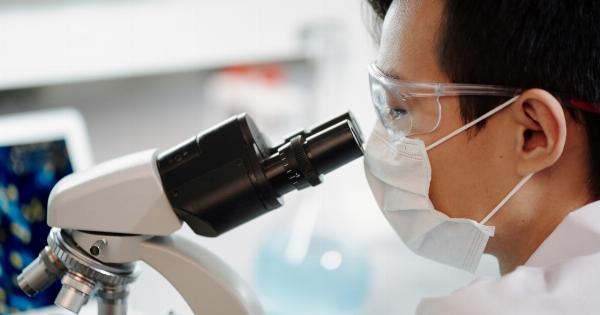Pancreatic cancer is a type of cancer that starts in the pancreas, an organ located behind the stomach. Pancreatic cancer is often hard to detect in the early stages because the symptoms can be vague and non-specific.
In fact, most cases of pancreatic cancer are diagnosed at an advanced stage, making the treatment more difficult. In this article, we will talk about the symptoms of pancreatic cancer and what you need to know to recognize them.
What Is the Pancreas?
The pancreas is an organ that plays a vital role in the digestive system and the endocrine system.
The pancreas produces enzymes that aid in the digestion of food in the small intestine, as well as hormones such as insulin and glucagon, which play a role in regulating blood sugar levels.
What Causes Pancreatic Cancer?
The exact cause of pancreatic cancer is not known, but there are certain risk factors that can increase the chances of developing the disease. These risk factors include:.
- Age – Pancreatic cancer is more common in people over the age of 60.
- Smoking – Smoking cigarettes is the most important risk factor for pancreatic cancer. Smokers are two to three times more likely to develop pancreatic cancer than non-smokers.
- Obesity – Being overweight or obese can increase the risk of developing pancreatic cancer.
- Family history – Having a close relative such as a parent, sibling, or child with pancreatic cancer can increase the risk of developing the disease.
- Chronic pancreatitis – Chronic inflammation of the pancreas can increase the risk of developing pancreatic cancer.
Symptoms of Pancreatic Cancer
As mentioned earlier, the symptoms of pancreatic cancer can be vague and non-specific, which makes it harder to detect the disease in the early stages. Some of the common symptoms of pancreatic cancer include:.
- Abdominal pain – Pain in the upper abdomen or back is a common symptom of pancreatic cancer. The pain may be more severe after eating or lying down.
- Jaundice – Jaundice is a condition in which the skin and whites of the eyes turn yellow. This occurs when there is a buildup of bile in the body. Bile is a digestive fluid produced by the liver and stored in the gallbladder. In pancreatic cancer, the tumor can block the bile duct, leading to jaundice.
- Unexplained weight loss – Losing weight without trying can be a sign of pancreatic cancer.
- Loss of appetite – A reduced appetite and a feeling of fullness after eating a small amount of food can be a symptom of pancreatic cancer.
- Nausea and vomiting – These symptoms can occur due to the tumor blocking the digestive system.
- Changes in stool – Pancreatic cancer can affect the digestion of fats, leading to oily, greasy stools that are difficult to flush.
When to See a Doctor?
If you experience any of the symptoms mentioned above, it is important to see a doctor. Remember, the symptoms of pancreatic cancer can be vague and non-specific, but they should not be ignored.
Early detection is key to successful treatment of pancreatic cancer.
How Is Pancreatic Cancer Diagnosed?
If your doctor suspects that you have pancreatic cancer, they will order some tests to confirm the diagnosis. These tests may include:.
- Imaging tests – such as CT scan, MRI, or ultrasound.
- Blood tests – to check for elevated levels of certain proteins such as CA-19-9.
- Biopsy – a sample of tissue is taken from the pancreas and examined under a microscope to confirm the presence of cancer cells.
Treatment Options for Pancreatic Cancer
The treatment for pancreatic cancer depends on the stage of the cancer and the overall health of the patient. The treatment options may include:.
- Surgery – Surgery is usually recommended for early-stage pancreatic cancer. The goal of surgery is to remove the tumor and a portion of the pancreas.
- Chemotherapy – Chemotherapy is a treatment that uses drugs to kill cancer cells. Chemotherapy may be given before or after surgery, depending on the stage of the cancer.
- Radiation therapy – Radiation therapy uses high-energy radiation to kill cancer cells. This treatment may be used in combination with chemotherapy or as a palliative treatment to relieve symptoms.
Prevention of Pancreatic Cancer
Although there is no sure way to prevent pancreatic cancer, there are certain lifestyle changes that can reduce the risk of developing the disease. These changes include:.
- Quit smoking – If you smoke, quitting is the best thing you can do to reduce your risk of developing pancreatic cancer.
- Eat a healthy diet – Eating a diet that is low in fat and high in fruits, vegetables, and whole grains may reduce the risk of developing pancreatic cancer.
- Maintain a healthy weight – Being overweight or obese can increase the risk of developing pancreatic cancer.
- Exercise regularly – Regular exercise can improve overall health and reduce the risk of developing pancreatic cancer.
Conclusion
Pancreatic cancer is a serious disease that can be hard to detect in the early stages. If you experience any of the symptoms mentioned above, it is important to see a doctor. Remember, early detection is key to successful treatment of pancreatic cancer.
By making healthy lifestyle choices, you can reduce the risk of developing pancreatic cancer.



























